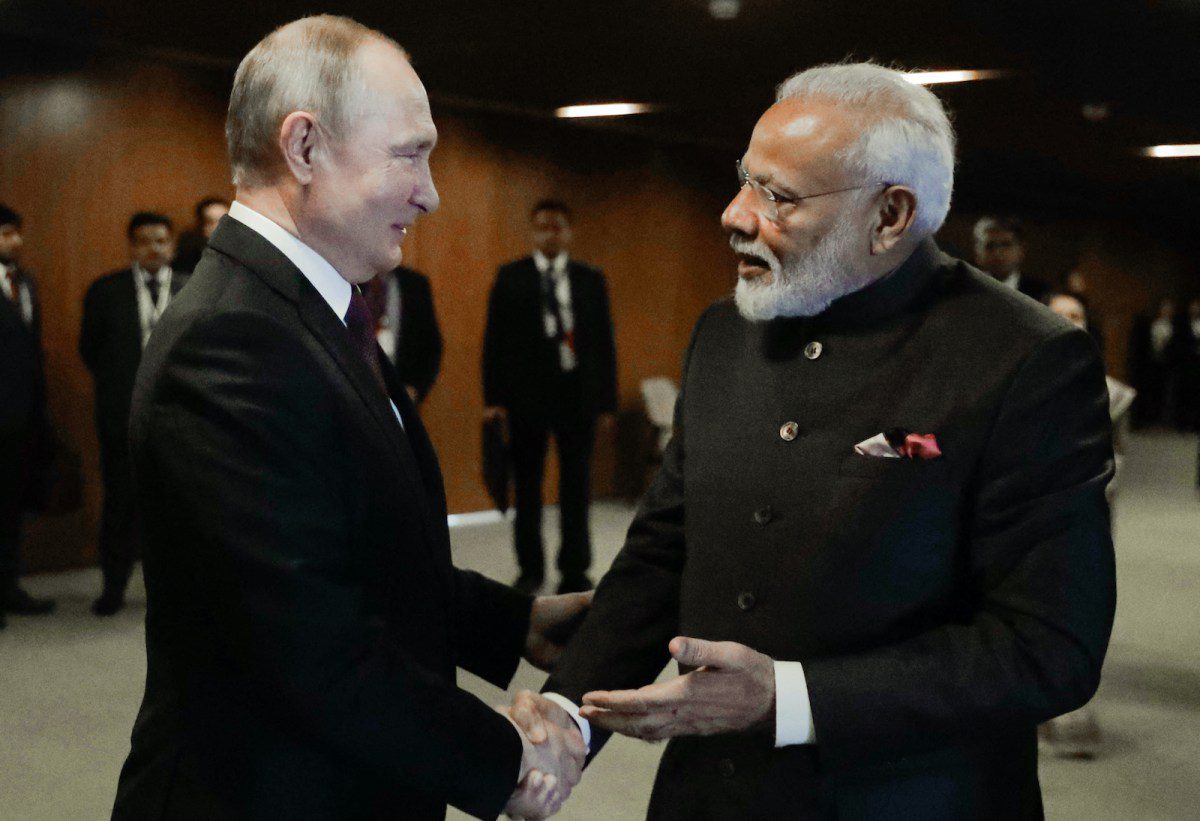Global Courant 2023-05-04 09:05:12
Most relationships, over time, undergo a transition from appreciation for each other to a “state of having,” a desire to own or even control the other. But the current pivotal moment in the Russian-Indian relationship shows that an equal relationship does not fall into that trap.
Indian Foreign Minister Subrahmanyam Jaishankar drew attention to this salience addressing a Russian-Indian business forum in Delhi last week when he called the relationship among the “most stable” in global relations, pointing out that the partnership is attracting so much attention not because it has changed, but because it hasn’t.
The ‘liberal-internationalist’ camp in the Indian media and think-tank circuit and misinformed opinion sections that launched an attack on the Indian stance on the Ukraine crisis have lately understood the raison d’être of the government’s handling of the fraught situation that entailed risks of a possible confrontation between the West and Russia.
There is every indication that Washington, too, from whom Indian lobbyists usually draw encouragement, has decided to reconcile itself with the Modi administration’s unequivocal message to the West that India will pursue a relationship with Russia in its own interest and go either way who represent his interests. lie.
Thus one commentary the Voice of America noted on Sunday against the backdrop of a 50-strong Indian business delegation heading to Russia in an initiative to deepen economic ties:
“India and Russia are also in talks for a free trade agreement…Moscow has become India’s largest supplier of crude oil…
New Delhi has not joined the US-led Western sanctions against Moscow or outright condemned Russia’s invasion of Ukraine, but has called for a negotiated resolution to the conflict. It also continues to ramp up its economic relations with Russia, despite Western calls to gradually distance itself from Moscow.
“Although New Delhi has strengthened strategic partnerships with the United States and other Western countries over the past two decades, it maintains close ties with Moscow….
“While Western countries want India to reduce its reliance on Russian imports to isolate Moscow over the Ukraine war, New Delhi remains steadfast in maintaining its economic involvement with Russia.”
The excerpts above recognize that India, for its part, also indicates that this paradigm need not necessarily be understood as a zero-sum game and Washington accepts, albeit grudgingly, that it cannot force India into submission.
President Joe Biden’s invitation to Prime Minister Narendra Modi for a state visit to the White House in June and his subsequent decision to participate in the Group of Twenty Summit in New Delhi in September are undoubtedly testament to the creative response of the United States on the robustness of Indian diplomacy to protect ties with Russia from predators.
Japanese Prime Minister Fumio Kishida, US President Joe Biden and Indian Prime Minister Narendra Modi attend a photo shoot at the launch of the Indo-Pacific Economic Framework (IPEF) in Tokyo, Japan, on May 23, 2022. Photo: Pool
The real challenge for the Biden administration, however, is to take the US-India relationship out of the rut of a typically transactional one and create a true partnership of mutual benefit, which, from an Indian perspective, fits into Modi’s roadmap to “transform” India in a developed country’ over the next quarter century, as he put it in a public speech in Kochi, Kerala, on Monday (May 1).
Certainly, Indian expectations are high in terms of development and Delhi will not be satisfied with just a minor role in the United States’ global strategy. The US and its allies see India as a “balancer” in the Indo-Pacific region, but it is clear that New Delhi has bigger plans.
Russia’s proposal to use its huge export earnings from oil sales to India by investing the money in India’s manufacturing industry for export to Russia; the agreement on the approval of the Russian financial messaging system for cross-border payments; the acceptance of Indian Ru-Pay cards and Unified Payments Interface (UPI) in Russia and the Russian Mir cards and rapid payment system in India; the operationalization of the Maritime Corridor connecting Vladivostok and Chennai – these testify to the willingness of both countries to lay the necessary foundations for a massive expansion of Russian-Indian trade and economic relations in the very near future.
Jaishankar’s speech at the business forum last week stressed the need to boost India’s exports to Russia, while his Russian counterpart on the intergovernmental joint economic commission, Deputy Prime Minister Denis Manturev, called for stepping up negotiations on a free trade agreement with India and working on a investment protection pact.
Bilateral trade has surpassed $45 billion, something unimaginable until Russia turned its back on the West and began to fall for alternative partnerships in Asia to replace European partners. For its part, the Modi administration has been quick to seize this new opportunity, especially at a time of post-pandemic recovery and inflation-plagued European and US economies sliding into recession.
This is a golden opportunity for India to gain special privileged access to the vast mineral resources of Siberia and the Russian Far East and the modern-day El Dorado of the Russian Arctic. There is great complementarity here in that India, with its growth trajectory, presents itself across the board as a long-term market for Russia’s resource-based industry.
There are actually no contradictions in the Russian-Indian relationship. Some Indian analysts continue to echo US propaganda that Russia is becoming China’s “junior partner” and that this is eroding mutual trust between Russia and India.
This slander stems from a lack of understanding or, more likely, from a deliberate, contrived distortion that ignores the fact that Russia and China are ‘civilization states’, each in their own way – and that they are neighbors with a troubled history – which simply prevents them from choosing a relationship in a hierarchical order that involves a formal alliance.
The bottom line is that Indian ingenuity lies in creating synergy from the dynamic Russian-Indian-Chinese (RIC) triangle that could create an optimal external environment for its foreign policy to operate regionally and globally. The entrenched narrative of the Sino-India relationship that successive Indian governments have nurtured is a hindrance. That said, it is not a legacy of the Modi government.
This undated handout photo released by the Indian Army on February 16, 2021 shows PLA soldiers and tanks during military withdrawal along the Line of Actual Control at the India-China border in Ladakh. Photo: AFP/Indian Ministry of Defence
Russia is well positioned to revitalize the RIC Triangle as its bilateral ties with both China and India expand and deepen. The Modi government is pursuing a “de-ideologized” foreign policy focused on national interests.
This is only to be expected if the world order changes as India looks to maximize its interests and embrace a greater strategic and security role for itself. Essentially, however, India remains a stakeholder in a democratized multipolar international order.
Russia appreciates this nuance and has never been prescriptive.
This article was created in collaboration with Indian clue And Globe trotterwhich it provided to Global Courant.
MK Bhadrakumar is a former Indian diplomat. Follow him on Twitter @BhadraPunchline.
Similar:
Loading…








